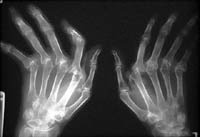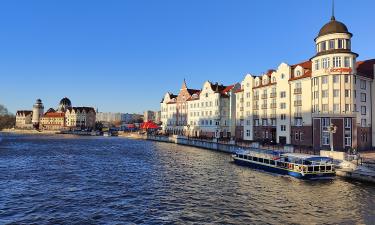Cracking knuckles without pain causes no harm to joints
Many people face the problem of cracking joints. Some peoples' bodies play a percussive symphony of cracking and creaking, thanks to the large orchestra of noise-making human joints. But what's behind it all?

The concerto comes from the pop of gas bubbles escaping the joints, snapping tendons and ligaments, and rickety arthritic joints.
A protective fluid cushions most of the joints in our bodies.
Inside a capsule that safeguards bones connected at a joint, synovial fluid keeps the cartilage, tissues, and muscles lubricated and well nourished. Nutrients float inside the fluid, along with gases, such as oxygen, nitrogen and carbon dioxide.
As you bend your fingers, the joint capsule stretches. To make more room for the stretch, gases release out of the fluid. The pop of your knuckles is the sound of gas as it bubbles out of the fluid, scientists say. Before your knuckle can crack again, the fluid must reabsorb the gas.
Tendons and ligaments make a loud racket too.
Tendons are like rubber bands stretched over joints that keep muscles attached to bones. Similarly, ligaments extend to connect bones to other bones. Sometimes, tendons and ligaments slide out of their spot at the joint and then quickly snap back into place.
If your knee cracks when you stand up from sitting on the couch, you're likely hearing your tendons and ligaments popping into proper position around your knee's joints.
Arthritic joints not only cause pain, they can creak as well.
Connecting bones loose their smooth cartilage and grow spurs on their edges. The amount of synovial fluid also increases, making the joint feel stiff and sore.
Scientists have conducted few studies on whether cracking your knuckles can cause arthritis or otherwise harm your hands.
Some studies suggest that you can snap your knuckles all you wish, and it won't cause osteoarthritis.
However, other studies indicate that around-the-clock cracking may damage the soft tissue around the joints, make your hand swell, and weaken your grip, LiveScience reports.
Do you need to worry about creaking and popping joints?
Not usually.
Joint cracking, commonly in the ankles and knees when walking up steps, is usually a benign condition that you do not need to worry about. While the exact cause is hard to detect, you are not doing damage to the joints when you hear them crack.
If you have pain associated with the cracking joints, then you should be evaluated to make sure there is not an underlying problem. But the average snapping ankles, or creaking knees is not a problem.
Does the joint cracking cause arthritis?
It's unlikely that joint cracking is a significant cause of arthritis. Joint cracking is usually painless, and so long as it does not cause pain, most doctors agree that you are unlikely to be doing any harm. There are some conditions that can cause a joint cracking that need to be addressed, but these tend to cause symptoms of pain.
If you have joint cracking that cause pain, you should be evaluated by your doctor. Otherwise, you are not likely to be causing any problems, including arthritis, by your joint cracking, about.com reports.
Source: agencies
Prepared by Alexander Timoshik
Pravda.ru
Discuss this article on Pravda.ru English Forum
Subscribe to Pravda.Ru Telegram channel, Facebook, RSS!




